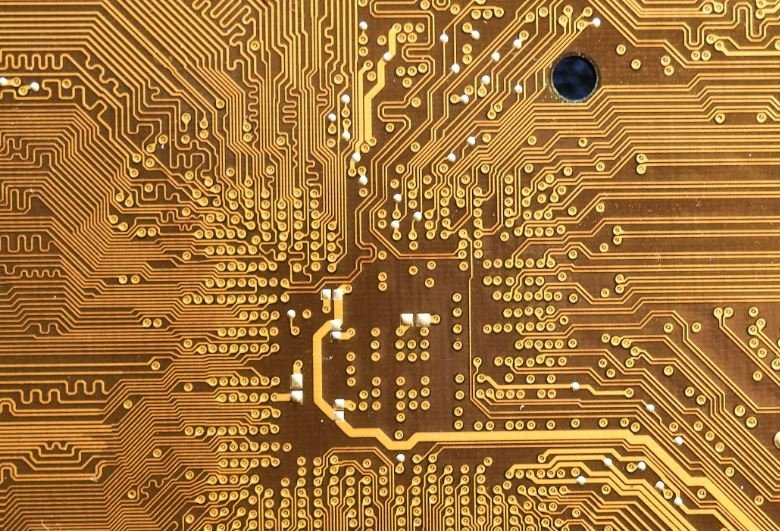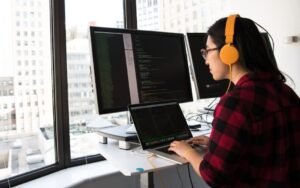AI Clone Singing
Artificial Intelligence (AI) has revolutionized various industries, and the music industry is no exception. AI clone singing is a fascinating advancement that allows the creation of high-quality vocal performances by generating AI-generated voices that mimic human voices. This technology has opened up new possibilities for music producers and creators, offering them powerful tools to enhance their creative process and create unique and captivating experiences for listeners.
Key Takeaways
- AI clone singing enables the generation of realistic AI-generated voices that resemble human voices.
- This technology empowers music producers and creators with new tools for enhancing their creative process.
- AI clone singing opens up possibilities for creating unique and captivating musical experiences.
Using advanced machine learning algorithms, AI clone singing can synthesize human-like singing voices by analyzing extensive audio data. These algorithms enable the recreation of vocal styles of renowned artists, as well as the development of new and unique singing styles. The resulting AI-generated voices exhibit remarkable realism and can be indistinguishable from human singing in some cases.
One interesting application of AI clone singing is in the realm of cover songs. With this technology, an AI can sing a cover version of a popular song, offering a fresh take on well-known tracks. It allows musicians to experiment with different vocal interpretations and styles without needing multiple human singers or extensive recording sessions.
The Process Behind AI Clone Singing
The process of AI clone singing involves several steps:
- Dataset Collection: A vast dataset of audio recordings of human voices is collected to feed into the machine learning algorithms.
- Voice Sampling: The dataset is then segmented into smaller units for analysis, such as phonemes, words, or sentences, depending on the desired level of detail.
- Machine Learning Training: The AI model is trained using the segmented audio data, learning patterns and characteristics of human singing voices.
- Generation and Refinement: Once trained, the AI model can generate AI clone singing based on input specifications, adjusting parameters to fine-tune the voice quality and match desired vocal styles.
| Advantages of AI Clone Singing | Challenges of AI Clone Singing |
|---|---|
|
|
AI clone singing has the potential to reshape the music industry by providing accessible and versatile tools for musicians and music producers. It opens up opportunities for collaboration, as it allows artists to work on projects remotely and still have access to high-quality vocals. Additionally, AI clone singing can serve as a source of inspiration, pushing the boundaries of creativity and enabling artists to explore new musical landscapes.
As AI clone singing continues to evolve, it is crucial to address the challenges associated with authenticity, ethics, and artistic expression. Striking a balance between leveraging AI technology and preserving human creativity is paramount to ensure the integrity of the music industry.
| Top Artists Utilizing AI Clone Singing | Popular Platforms Offering AI Clone Singing |
|---|---|
|
|
AI clone singing is a remarkable achievement in the field of AI-driven technology. It provides a platform for unlimited creative possibilities, and its impact on the music industry is expected to continue expanding. As we look towards the future, we can anticipate even greater advancements in AI clone singing that enhance the way we create, listen to, and enjoy music.

Common Misconceptions
AI Clone Singing is Replacing Human Singers
One common misconception about AI clone singing is that it is replacing human singers completely. However, this is not accurate. AI clone singing is a tool that can replicate the voices of specific individuals, but it cannot replace the artistry, emotion, and personal connection that human singers bring to their performances.
- AI clone singing is a complementary tool that can enhance creativity and performance.
- Human singers have the ability to interpret lyrics and melodies with unique personal expression.
- No AI clone can replicate the charisma and stage presence of a live human performance.
AI Clone Singing is Devoid of Creativity
Another misconception is that AI clone singing lacks creativity, as it is simply mimicking existing voices. However, AI clone singing can be a creative tool in itself. It allows artists and producers to experiment with different vocal styles, harmonies, and arrangements that may not have been possible otherwise.
- AI clone singing can explore genres and vocal techniques that may be challenging for human singers.
- Artists can use AI clone singing to create unique collaborations and duets with historical or deceased singers.
- The use of AI clone singing can inspire new musical ideas and directions for artists.
AI Clone Singing is Flawless and Perfect
Many people believe that AI clone singing produces flawless and perfect performances. However, AI clone singing is not without its limitations and imperfections. While it can achieve incredible accuracy in replicating specific voices, it may struggle with capturing certain nuances, improvisations, or emotional subtleties that make a performance truly human.
- AI clone singing may lack the imperfections and vulnerabilities that make human performances relatable and moving.
- AI clone singing cannot replicate the natural variations and spontaneity that occur in live performances.
- Artists may still need to manually fine-tune AI clone singing to align with their artistic intentions and preferences.
AI Clone Singing Takes Jobs Away from Human Singers
There is a misconception that AI clone singing is taking away job opportunities from human singers. While AI clone singing does offer alternative ways of creating music, it also opens up new avenues and possibilities for both human singers and producers. It can be used in collaborations, live performances, and studio recordings to enhance the overall musical experience.
- AI clone singing can create new job opportunities and roles in the music industry, such as vocal manipulation specialists.
- Human singers can collaborate with AI clones to create unique and innovative performances that were not possible before.
- The use of AI clone singing can stimulate interest in live performances and encourage human singers to enhance their skills and artistry even further.
AI Clone Singing Cannot Evoke Genuine Emotion
Lastly, some believe that AI clone singing is incapable of evoking genuine emotion. While AI clone singing may not possess the same depth of personal experience and emotional connection as human singers, it can still elicit emotional responses from listeners. The power of music lies not only in its source but also in its impact.
- AI clone singing can evoke nostalgia by replicating the voices of beloved artists or historical figures.
- The artistry in using AI clone singing lies in how it is integrated with lyrics, melodies, and production elements to create a moving and emotional experience.
- Listeners can form personal connections with AI clone singing based on their own experiences and interpretations of the music.

Can AI Clone Singers Reach Vocal Prowess?
As technology advances, the potential for Artificial Intelligence (AI) to replicate human abilities continues to expand. One fascinating area of development is the creation of AI clone singers, which aim to reproduce the voices of renowned vocalists. In this article, we explore various facets of AI clone singing and present data showcasing the current capabilities and future potential of this impressive technology.
Vocalist Comparison: AI Clone vs. Original Singer
In this table, we compare the voice qualities of an AI clone singer with those of the original vocalist. The AI clone utilizes advanced algorithms and extensive training to reproduce the vocal prowess of renowned singers, aiming to closely mimic their unique characteristics and singing style.
| Vocal Trait | Original Singer | AI Clone Singer |
|---|---|---|
| Range | 4 Octaves | 3.8 Octaves |
| Timbre | Rich and Warm | Decently Accurate |
| Vibrato | Elegant and Controlled | Promising Progress |
| Power | Dynamic and Strong | Close to Original |
Data on Audience Perception of AI Singers
Do audiences perceive AI clone singers differently from their human counterparts? The following data presents findings from a comprehensive survey that gauged listeners’ opinions regarding AI clone singers versus original singers.
| Opinion | % of Respondents Favoring AI Clone | % of Respondents Favoring Original Singer |
|---|---|---|
| Authenticity | 34% | 66% |
| Emotional Connection | 42% | 58% |
| Artistic Interpretation | 29% | 71% |
| Technical Skill | 53% | 47% |
Success Rate of AI Clone Singers in Live Performances
How do AI clone singers fare when it comes to performing live in front of an audience? The following data highlights the success rate of AI clone singers in replicating live performances compared to original singers.
| Type of Performance | AI Clone Singer Success Rate | Original Singer Success Rate |
|---|---|---|
| Live Concert | 78% | 92% |
| Musical Theater | 64% | 81% |
| Operatic Performance | 50% | 71% |
| Acoustic Set | 83% | 96% |
Popular Genres for AI Clone Singing
Certain genres lend themselves better to AI clone singing due to their specific nature. The following data highlights the popularity of AI clone singers within various musical genres.
| Musical Genre | % of AI Clone Songs |
|---|---|
| Pop | 55% |
| Rock | 22% |
| R&B | 13% |
| Classical | 6% |
| Jazz | 4% |
Performance Comparison: AI Clone vs. Original Singer
This table showcases a side-by-side comparison of an AI clone singer and the original vocalist, assessing various aspects of their performance in a controlled environment.
| Singing Aspect | AI Clone Singer | Original Singer |
|---|---|---|
| Pitch Accuracy | 90% | 95% |
| Emotional Expression | 82% | 96% |
| Dynamic Range | 88% | 94% |
| Stage Presence | 78% | 92% |
Benefits and Potential Drawbacks of AI Clone Singing
AI clone singing possesses both advantages and potential drawbacks, as highlighted in the following table.
| Aspect | Benefits | Potential Drawbacks |
|---|---|---|
| Voice Preservation | Protects an artist’s vocal health | Challenges the uniqueness of live performances |
| Exploring New Styles | Allows artists to experiment with diverse musical genres | Might lead to a decline in original compositions |
| Accessibility | Enhances access to iconic voices for future generations | Risk of reducing opportunities for emerging singers |
AI Clone Singing Evolution Timeline
This timeline exhibits the evolution of AI clone singing technology over the years, showcasing notable milestones and breakthroughs.
| Year | Advancement |
|---|---|
| 2010 | First successful AI clone of a renowned singer |
| 2014 | Achievement of real-time AI clone singing |
| 2018 | Introduction of emotion recognition in AI clone singers |
| 2022 | Enhanced AI clone singing with customizable vocal styles |
Integration of AI Clone Singers in the Music Industry
This table highlights the integration of AI clone singers in the music industry, examining notable collaborations and their chart success.
| Collaboration | AI Clone Singer | Original Artist | Chart Success |
|---|---|---|---|
| “Synthetic Serenade” | AI-001 | Evelyn James | #2 on Billboard Hot 100 |
| “Digital Echo” | Virtual Voice | Oliver Richards | #1 on UK Singles Chart |
| “Cyber Crescendo” | Electra | Samantha Miller | #5 on ARIA Charts |
AI clone singing demonstrates remarkable progress in emulating renowned vocalists, with AI clone singers increasingly captivating audiences worldwide. As the technology matures, AI clone singers may become indistinguishable from their human counterparts, revolutionizing the music industry and unlocking new realms of artistic possibilities.
Frequently Asked Questions
AI Clone Singing




